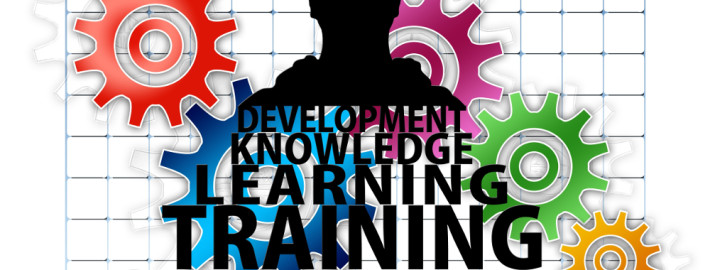Want to Build Your Probate Business? You Need a Great Lead Source!
By Leon McKenzie
Today’s real estate investors face the uncertainty that a changing market brings. From issues with lending to interest rates and disclosures, building a real estate business can be a daily challenge – though one that can be met with hard work and a dedication to the industry. If you are building a real estate business, then you need to have access to all of the information that will help you to build your portfolio.
One of the key pieces of information that you need in order to create a real estate business is to have accurate information as to which properties are currently on the market. Having access to good leads is the single best way to ensure that you are finding the options that you need in order to beat other investors to the negotiating table and get a great deal.
Understanding that leads are a key component to building a real estate business is one thing. Being able to access them in a historically tight market is another thing completely. Current market conditions are making it nearly impossible to purchase a home using a traditional manner without completely overpaying for the property or having to compete with a long list of other potential buyers. This is simply not a model for success for a real estate investor.
Leads are the Way to Build a Profitable Real Estate Business
Not having leads can cause your business to stall in a way that can be truly detrimental over the long term. Karen Rittenhouse, an expert in buying and selling real estate said, “As an investor, the key fundamental element in the first level of your real estate investing business is creating systematic and consistent lead generation. If you are not focused on lead generation, you do not have a business, you have a hobby or a dream.”
Think about it this way. . . if you don’t have any way of knowing what is on the market, or get that information when it is too late and the price has been driven too high, then you will miss out on opportunities that could change your financial future. Timely, viable leads have to be an integral part of your real estate business if you expect it to grow. Otherwise, you will simply have a “hit or miss” strategy hoping that you find something that you can afford and that is available when you need it.
The experts at Realtor Magazine say it this way, “The sea change in real estate these past few years has made leads more valuable than ever before. . . Whether your overall strategy employs cutting-edge technology solutions, tried and true methods, or a blending of those, the end result should be to turn leads into business.” The value in real estate leads is that it opens doors of opportunity for you to purchase homes on a consistent basis, giving you a way to fuel your business.
Where Can You Find Great Leads?
If you have worked in real estate for any length of time, then you know that finding viable leads can be one of the hardest parts of the business and one that can cause a whole host of problems in taking your enterprise to the next level. The experienced professionals at Realtor Magazine said, “But most [investors] encounter problems somewhere in the process of moving from lead capture to lead conversion . . . In particular, lead conversion — that is, turning a received lead into a face-to-face presentation — is a frequently a source of frustration.”
While some real estate professionals can’t seem to meet with sellers, others find it difficult to find leads in the first place. There are opportunities to locate real estate leads by networking with others in the community, using social media, buying ad space or even using SEO tactics, but all of these require that the leads come and find you. You are putting information out that will help people to find a place they can sell their home. That doesn’t help you to move the process forward on your own end, though.
Finding Leads You Can Pursue
When you discover that advertising and networking simply won’t help you to move your business forward, you need a new plan, one that involves being able to act on your own leads. Getting those leads is the only stumbling block. Once you have them, you can move forward with communication campaigns that will provide you with a non-stop stream of opportunities to build a thriving real estate business.
Luckily, with the advent of technology, new lead sources have been developed that can help you to get information that can give you an edge. These lead sources, such as the one developed by the experts at US Probate Leads, give you instant access to lists of homes that may be available for sale due to probate. Delivered to your inbox on a regular basis, each of these leads has been tested to ensure that it is viable and timely.
Why Choose Probate Leads?
There are many reasons to pursue probate leads instead of traditional real estate market leads. With the aging baby boomer population, more and more homes are coming available that can be purchased for a significant discount. Why is this the new trend real estate investors are experiencing? When a loved one passes away, someone needs to take responsibility for dealing with all of the personal items, investments and property that the individual owned prior to their death. To deal with this issue, the court assigns an Executor, who has the right and responsibility to close out the individual’s financial dealings. The Executor is charged with the decision making ability to sell homes, personal property and close accounts in order to pay funeral bills, medical charges, close credit cards and distribute money to the heirs. This responsibility comes with the ability to sell property, which is the point at which they become a lead for a real estate investor.
The Baby Boomer Generation Will Provide Extraordinary Leads
The aging of the largest generation in the history of the United States will mean that there are more leads than ever for real estate investors. What characterizes an actual “lead?” According to writers at Realtor Magazine, they state:
“I believe a ‘real lead’ is someone who will take action in the next 30 days and has a defined need or void that can be clearly identified and filled by my service. Either they have a high level of exclusive commitment to me or I can get them to that level by meeting with me (and they’re willing to meet with me). Eventually, I learned to tighten my definition to anyone who would buy or sell within a year. Then I tightened even more to anyone who would buy or sell within six months, then 60 days, and finally down to my current demarcation. If I had done this from the beginning, I would have saved myself from a lot of mistakes, anguish, and lost income. Now, I’m not saying to throw the long-term leads away. Actually, let me put it as clearly as possible: Do not throw the long-term ones away! Today, we’re finding people in the search process much earlier than before because they’re out looking and shopping. We need to engage and connect with them.”
As you can see, a viable “lead” is one where the Executor is willing to sell their property in the short term. The reason that so many Executors are quick to sell is that they need cash to deal with the estate’s bills. These can include more than just the cost of the funeral, but also credit card bills, income tax, real estate taxes, estate taxes, medical bills, home maintenance fees and much more. In reality, Executors need investors who are willing to purchase their home quickly. That said, short term leads are not the only ones that are viable. While you may want an Executor to sell quickly, having leads that you can pursue over the long term will give you a constant stream of homes to evaluate to add to your portfolio.
Due to the need for cash, probates tend to sell not only quickly, but for a reduced rate. The reduced rates you can find as a result of good leads can save you from thirty to fifty percent on assets owned by the estate. With some careful research, you can find many opportunities within each probate to profit.
More than Just Homes with Probate Leads
While you may think that probate leads will only give you information about residential property that is simply not true. With probate leads, you can learn about many investment opportunities that are available in any given estate. These can include commercial property, such as warehouses, office buildings and restaurants; vacation homes that can be rented out for a profit and enjoyed by your family; and apartments and condos. Additionally, you can find businesses that are for sale that are currently running that will quickly add a stream of income to your family.
With probate leads it is also possible to create more than just a real estate investment business. There are many associated services that can lead to profits. Thinking creatively about how you use your leads may include starting an estate sale service and helping Executors to sell the personal items that have been left behind by their loved one. Using a lead service can also help you to offer rehabilitation services to commercial property owners. If you have experience in antiques, collector cars, boats, art, ATVs, RVs, model trains or personal watercraft, you can specialize in buying and selling these valuable items by using leads to locate them.
The Best Source of Leads
If you are serious about building your business, then the best way to do so is to get your leads from the nation’s best source. At US Probate Leads, we offer the highest quality leads in the United States. Our trained team visits courthouses in every county across the country accessing the most up-to-date and viable probate leads. This data is sent to you directly to your inbox each week, saving you the time, expense and hassle of going to the local courthouse and sifting through filing after filing.
In addition to our leads, we offer a wide range of supportive services that can help you to build your business. From software to books, e-books, webinars, seminars and even individualized mentoring services, we can ensure that your business grows and develops to meet your vision. Call us today to speak to one of our friendly, knowledgeable team members about leads in your community or other resources. Call now!
Sources:
http://www.karensperspective.com/100-ways-to-create-real-estate-leads/
http://realtormag.realtor.org/sales-and-marketing/feature/article/2011/08/what-lead-you











































